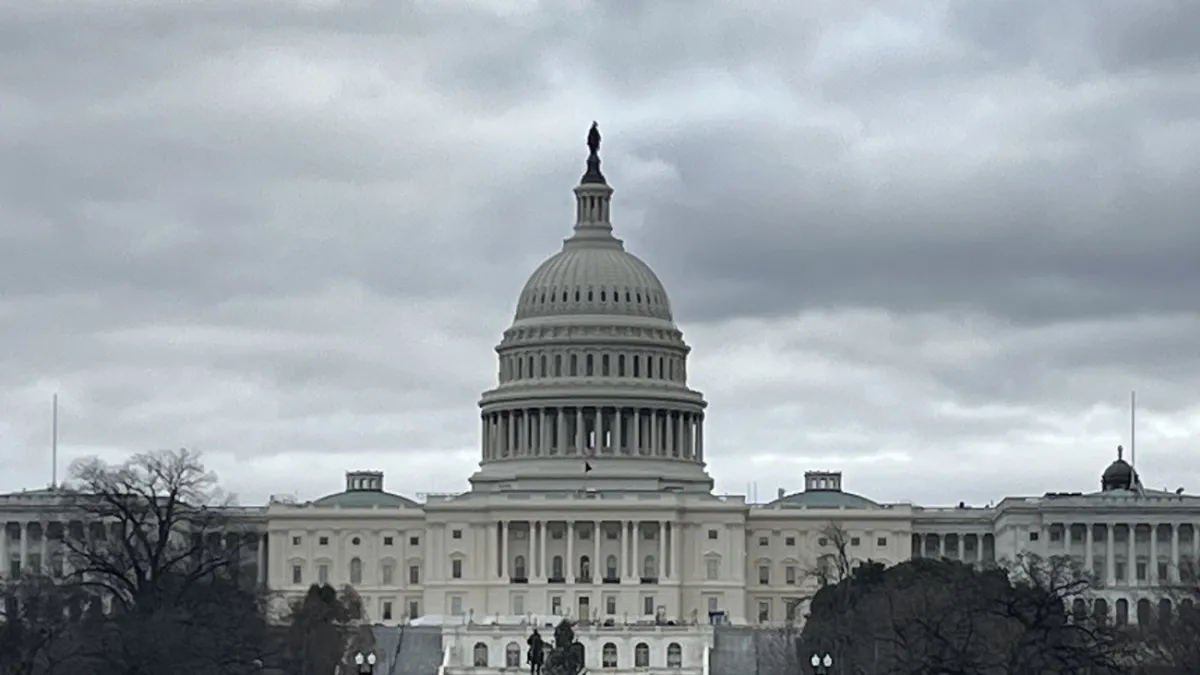
Republicans continue their race to piece together the sections of their massive budget reconciliation bill. Three House panels approved portions of the “big, beautiful bill” on Tuesday and three more committees — Transportation, Judiciary and Oversight — took up their pieces today. But there may be trouble ahead. Here’s an overview.
Republicans drop controversial $20 annual fee on cars: The House Transportation and Infrastructure Committee voted 36-30 on Wednesday afternoon to pass a plan that would provide extra funding for the Coast Guard and the Federal Aviation Administration while rescinding Biden environmental programs. The plan also called for raising about $50 billion from new fees, including annual registration fees of $200 on EVs, $100 on hybrids and, starting in 2031, $20 on all other passenger vehicles. But the annual fee on cars drew significant blowback from lawmakers in both parties, who panned the idea of a “car tax,” so Republicans dropped it and instead raised the fee for EVs to $250.
The changes reportedly also reduced the money for the air traffic control system from $15 billion to $12.5 billion and trimmed the new Coast Guard funding from $23 billion to $21.2 billion.
The fees would go to the perpetually underfunded Highway Trust Fund. The plan is aimed at replacing the federal gas tax of 18.4 cents per gallon. In all, the proposal is estimated to cut more than $10 billion from deficits over a decade.
A big boost for the Pentagon: In a 35-21 vote, the House Armed Service Committee approved a plan to increase defense spending by $150 billion, including $34 billion for shipbuilding, $25 billion for a “Golden Dome” missile-defense shield and $9 billion to improve quality of life for servicemembers. Five Democrats crossed party lines to support the package: Reps. Don Davis of North Carolina, Jared Golden of Maine, Gabe Vasquez of New Mexico, Eugene Vindman of Virginia and George Whitesides of California.
Republican Rep. Mike Rogers of Alabama, the chairman of the House Armed Services Committee, touted the added funding as an overdue investment to modernize the military and strengthen an atrophied defense industrial base. “Defense spending is not keeping up with inflation,” he said to start the hearing. “In fact, we are currently at the lowest level of defense spending as a percentage of GDP since before World War II. That’s unacceptable, and it must change. If we want to restore American deterrence and ensure peace through strength, we must get back to at least 4% of GDP spending.”
Big changes to student loan programs: The House Education and Workforce Committee voted 21-14 along party lines to advance a plan that, as we told you yesterday, would overhaul the federal student loan system to save over $330 billion.
“Streamlining loan options as done in this bill will increase affordability for students and families as well as curtail the extent to which schools use taxpayer dollars to line their pocketbooks by loading students up with debt they can’t repay,” committee Chairman Tim Walberg said.
American Federation of Teachers President Randi Weingarten said the GOP plan would gut Pell grants and hurt borrowers. “This bill takes a hatchet to American opportunity by slashing $330 billion in college affordability to pay for tax cuts for billionaires,” Weingarten said in a statement. “This cruel and callous plan would increase individual costs for borrowers, while removing guardrails against predatory colleges hawking worthless degrees.”
More money for border barriers: The House Homeland Security Committee also voted along party lines, 18-14, to approve additional border funding, including $46.5 billion to complete 700 miles of border wall, 900 miles of river barriers and more than 600 miles of other barriers. The plan also includes $4.1 billion for new Border Patrol agents and $5 billion for Customs and Border Protection facilities.
New fees on migrants seeking asylum: The Judiciary plan proposed by Republicans includes several elements that are part of a broader crackdown on immigration, such as a minimum $1,000 fee to claim asylum and a $3,500 fee for sponsors of unaccompanied children. It also calls for $45 billion for migrant detention centers, $14.4 billion for migrant removal and $8 billion for new Immigration and Customs Enforcement staff.
Pension cuts for federal workers: The House Oversight Committee voted 22-21 to advance its section of the reconciliation bill, which Republicans say will reduce the deficit by $50.9 billion, in large part by raising the retirement contribution rate for many current federal civilian employees to 4.4% of their salary. The plan also cuts a benefit for federal workers who retire before the age of 62, among other changes. Labor groups slammed the changes, which they said piled on more pain for federal workers already being targeted by the Trump administration. Republican Rep. Mike Turner also objected to the plan. “I do not believe that this bill represents Republican values, and I don’t believe that it represents American values,” he reportedly said during the markup. “I believe that making changes to pension retirement benefits in the middle of someone’s employment is wrong.”
Turner reportedly said that the pension changes will not be included in the final reconciliation bill compiled by the Budget Committee.
What’s next: Republicans are speeding ahead with their package and are set to have 6 of 11 pieces approved by tonight — but the biggest challenges lie ahead, including contentious provisions on taxes, food stamps and Medicaid as well as differences over the level of spending cuts. “The megabill has mega issues,” Politico reported this morning.
The most fraught issue may be Medicaid. The Energy and Commerce Committee has been tasked with finding $880 billion in savings, most of which is expected to come from Medicaid. Republicans are still negotiating over potential changes to the program, but Rep. Don Bacon of Nebraska and reportedly said he’ll only support up to $500 billion in Medicaid cuts, and other moderates have also pushed back against deep cuts to the program.